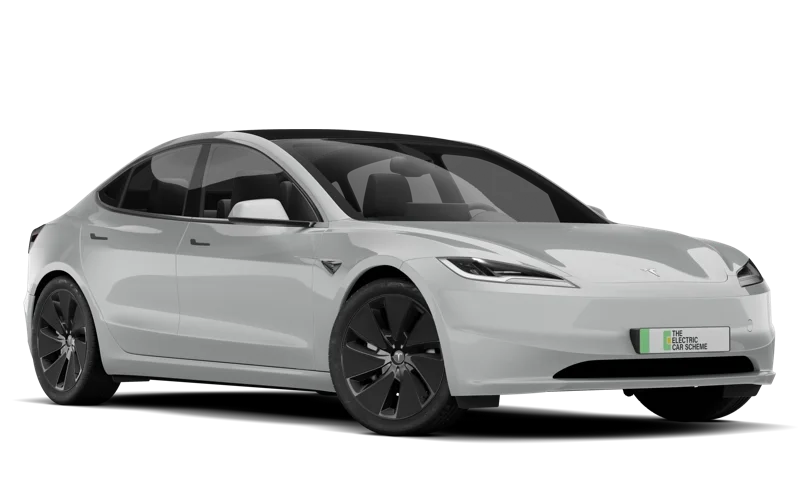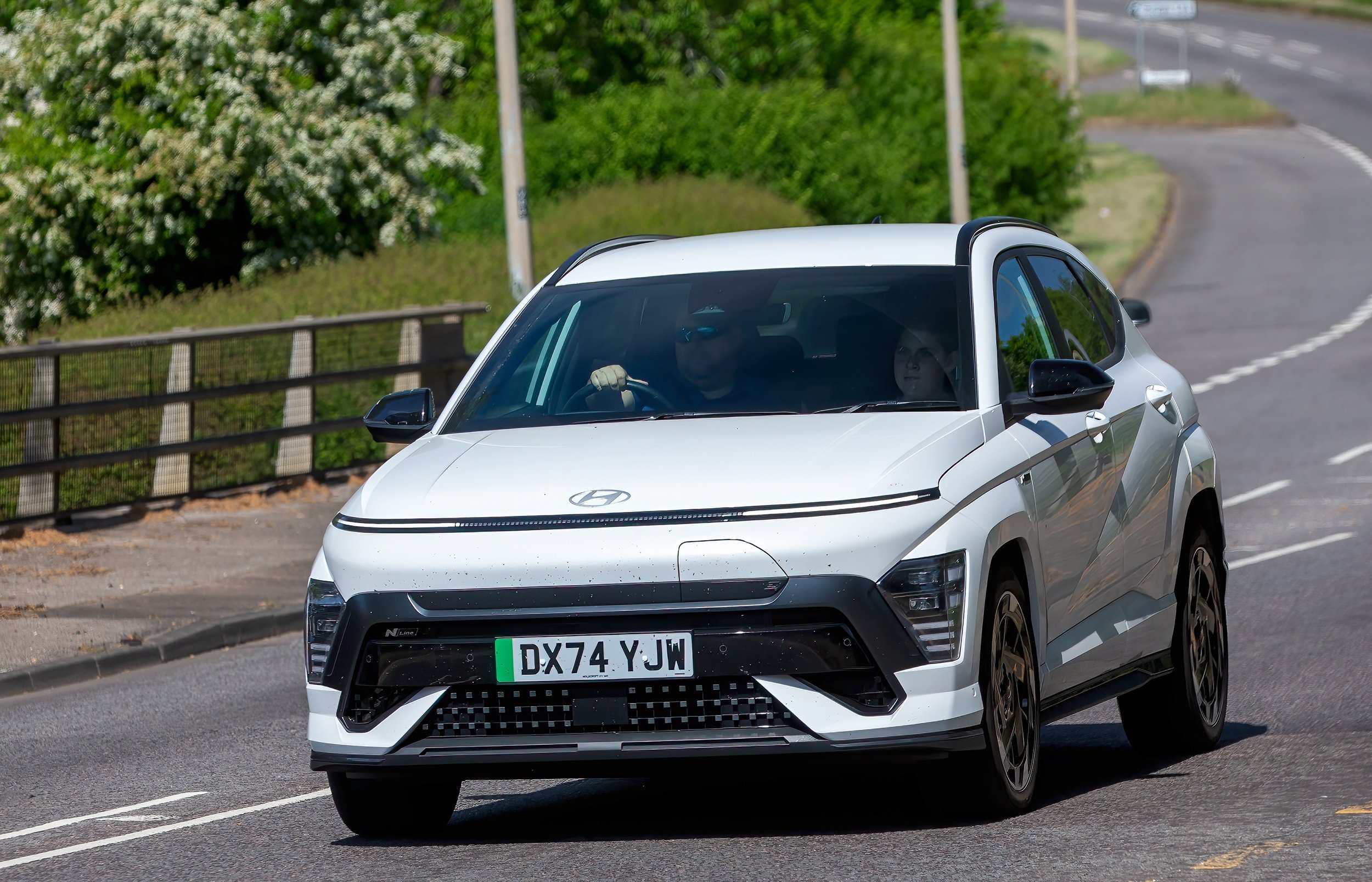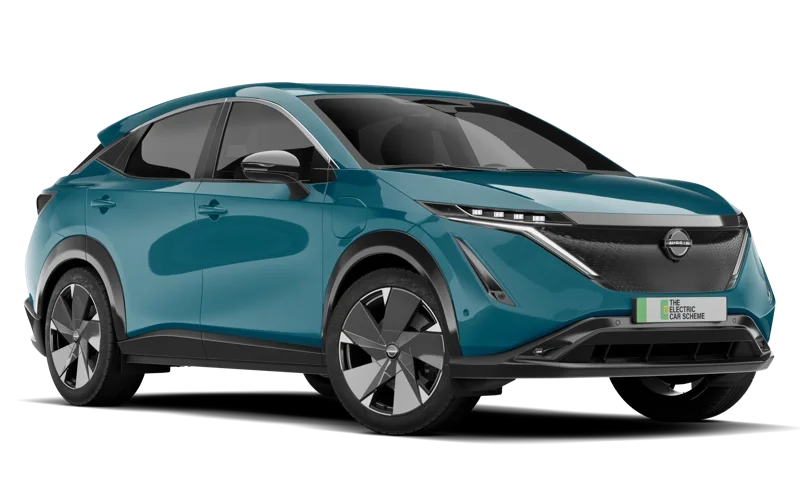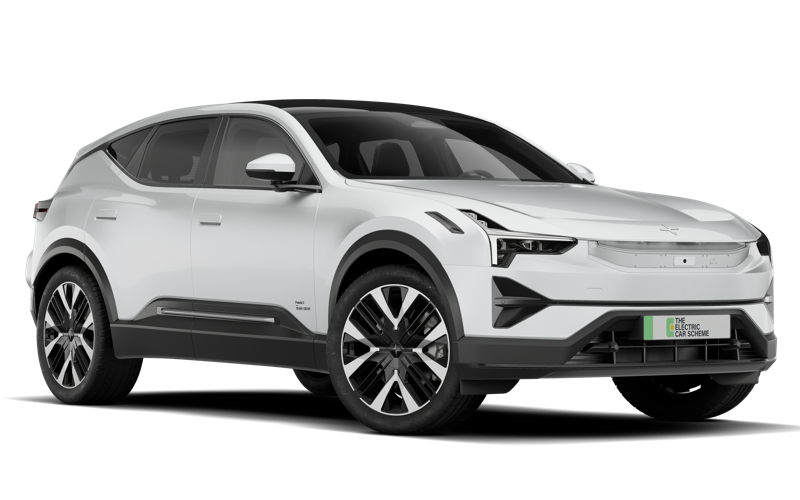Is It Worth Having a Company Car in 2026?
Source: Shutterstock
Company cars have changed significantly in recent years. With the UK's push towards Net Zero, the mainstream switch to electric vehicles, and a new wave of tax incentives, the question "Is it worth having a company car in 2026?" has become more relevant than ever.
The short answer? Yes… If you choose electric. But every driver's situation is different, and the right choice depends on mileage, tax bracket, vehicle type, and whether your employer offers a salary sacrifice scheme.
In 2026, company cars remain one of the most powerful employee benefits in the UK, particularly when paired with electric vehicles (EVs). Fully electric company cars attract a 4% Benefit-in-Kind tax rate from April 2026. In comparison, petrol and diesel cars can fall anywhere between 20% and 37% BiK, depending on emissions. That gap alone can save higher-rate taxpayers thousands of pounds a year!
On top of that, salary sacrifice transforms affordability, letting you pay for the car out of your gross salary. Many drivers save 20–50% compared to personal leasing - even before considering the much lower tax on EVs and the running cost savings they offer.
This guide walks you through everything you need to know to make an informed choice in 2026, including how company car schemes work, what's included, the pros and cons, how BiK is calculated, and real examples of what drivers pay in practice. Whether you're an employee making a personal decision or an HR leader building a benefits package, consider this your complete company car handbook for 2026.
What Is a Company Car Scheme?
A company car scheme is an employee benefit where your employer provides a vehicle for both business and personal use. While this type of benefit has been around for decades, today's schemes look very different from traditional fleets of the past.
From Fleet Cars to Today's Flexible Benefits
Historically, employers would purchase cars outright or via fleet leasing, issuing specific makes and models to staff who needed to travel for work. Drivers had little choice, and the cars were often high-emission petrol or diesel models.
In 2026, things look completely different:
Employers rarely buy vehicles outright anymore
Electric vehicles now dominate company car lists
Drivers can usually make their pick from a broad choice of models
Salary sacrifice has become the most common way to access EVs
Businesses benefit from lower NI contributions
Employees enjoy predictable, all-inclusive motoring costs
The company car has shifted from a "perk of the job" to a tax-efficient, cost-saving tool that can apply to almost any employee.
Types of Company Car Arrangements
You'll find three main structures in 2026:
1. Employer-Owned Vehicles
Your employer leases or owns the car, and you pay BiK tax for using it privately. This is common in sales roles, field operations, and positions that require regular travel.
| Advantages | Disadvantages |
|---|---|
| No upfront cost | Usually a set list of cars |
| Employer handles everything | Less flexibility than salary sacrifice |
| Access to newer, safer vehicles |
2. Salary Sacrifice
This is now the most popular option for electric company cars. You give up a portion of your gross salary, and in return, you receive a fully maintained EV. Because your taxable income falls, you save:
Income tax
National Insurance
Employer also saves NI, helping fund the scheme
Salary sacrifice is particularly powerful when combined with EV BiK rates of just 4% from April. Many employees find they can access a far more premium vehicle than they could afford privately.
Car Allowance
In the case of a car allowance, instead of receiving a car, your employer gives you an extra salary. You then buy or lease your own vehicle, pay for insurance, maintenance, tyres, and handle depreciation yourself. This is flexible, but far less tax-efficient. You pay income tax and NI on the allowance, which reduces the amount available for your running costs.
What's Included in a Modern Company Car Scheme?
Most company EV schemes in 2026 are all-inclusive.
Your monthly amount typically covers:
Vehicle lease
Servicing, maintenance, and wear-and-tear items
Tyres
Breakdown cover
MOT (if required)
Road tax (VED) - now applicable to EVs
Comprehensive insurance (in many schemes)
Image source: Shutterstock
Some schemes also include help with:
Cheaper EV charging via partner programmes
This bundled approach is one of the main reasons company cars, especially electric ones, are so cost-effective compared to owning a car privately.
Benefits of Company Car Schemes
Company car schemes offer a long list of advantages, especially for anyone choosing an electric vehicle. Below are the major benefits that typically make company cars highly worthwhile.
Significant Tax Advantages with Electric Vehicles
This is the biggest reason company cars offer such compelling value in 2026.
The Benefit-in-Kind (BiK) tax on electric vehicles is exceptionally low:
4% from April 2026
Then rising gradually to 5%, 7%, and 9% by 2029/30
By contrast, petrol and diesel vehicles can attract BiK rates of up to 37%.
Here's what that difference looks like in practice.
Example: EV vs Petrol
Take two similarly priced cars:
Tesla Model 3 – EV: P11D value £39,990, BiK rate 3%
BMW 320i – Petrol: P11D value £40,000, BiK rate approx. 30%
| Vehicle | P11D Value | BiK Rate | 20% Taxpayer Monthly | 40% Taxpayer Monthly |
|---|---|---|---|---|
| Nissan Ariya EV | £48,000 | 3% | £24 | £48 |
| BMW 3 Series Diesel | £45,000 | 30% | £225 | £450 |
| Mercedes E-Class Petrol | £50,000 | 35% | £291 | £583 |
Access to Premium Vehicles at Lower Costs
Because salary sacrifice uses your gross salary, you save tax on the payment itself. This means you can often drive a better car for far less than you would pay privately.
For example, a premium electric SUV worth around £60,000 might cost:
£1,100/month on a personal lease
£550/month through salary sacrifice once tax savings apply
That difference puts vehicles like Audi, Mercedes, Tesla, and Polestar within reach for many employees.
Zero Depreciation Risk
Depreciation is the highest hidden cost of car ownership. A car can lose 40–60% of its value over three years.
With a company car:
You never own it
You hand it back at the end
You're protected from resale risk
You avoid the stress of selling or trading
This alone can make leasing through your employer cheaper than ownership.
Drive the Latest Technology
Company car contracts typically run for 2-4 years, meaning you regularly upgrade to newer vehicles.
With EV technology moving rapidly, this means you always have:
Smarter driver assistance systems
Improved safety features
Faster charging speeds
If you value being behind the wheel of something modern, this matters.
All-Inclusive Peace of Mind
Everything is covered in one predictable monthly amount. There are no surprise garage bills, no tyre costs, no roadside membership fees, and no scrambling to arrange insurance renewal. This makes budgeting simple and pairs well with the convenience of electric driving.
Environmental Benefits
More businesses are prioritising sustainability. By choosing an electric company car, you:
Reduce your personal carbon footprint
Support your employer's Net Zero goals
Avoid most Clean Air Zone and ULEZ charges
Contribute to cleaner air in cities
For organisations with ESG targets, electric company cars can be an important piece of the puzzle.
Disadvantages and Limitations
Image source: Shutterstock
Company car schemes aren't right for everyone. Here's what to consider before making your decision.
You Still Pay BiK Tax (Even If It's Low for EVs)
While electric vehicles have very low BiK, the tax still exists.
Example for a £40,000 EV at 4% BiK:
Annual BiK: £1,600
Monthly BiK value: £133.33
20% taxpayer: £27/month
40% taxpayer: £53/month
This is far lower than what most drivers spend on fuel in a petrol car, but it's still worth factoring into your budget.
Fuel Benefit Tax Can Be Costly
Fuel benefit tax applies if your employer pays for all your private fuel or charges.
The multiplier for 2025/26 is £28,200. For an EV at 3% BiK:
£28,200 × 3% = £846
Higher-rate taxpayer pays £338/year
For petrol cars at higher BiK rates, this can run into thousands.
Most employees choose to:
Pay for their own fuel or charging
Claim HMRC business mileage where needed
Avoid the fuel benefit tax entirely
It's usually the more cost-effective approach. The Charge Scheme offers a solution to this!
Less Flexibility Than Personal Ownership
Company cars come with a few rules you'll need to follow:
No modifications (e.g. wraps, remaps, spoilers)
Mileage limits
Possible excess mileage charges
Restrictions on who can drive the car
No option to keep the vehicle at the end
If you want full control over your car, this may feel a bit restrictive. But for most drivers, these limitations are a fair trade-off for the convenience and savings.
Job Dependency
Your company car is tied to your employment. If you:
Change jobs
Are made redundant
Move to a non-eligible role
…you may need to return the vehicle quickly.
Good salary sacrifice schemes often include early termination protection for employers, but there may still be a short transition period for you to arrange alternative transport. It's worth checking your scheme's terms before signing up.
No Equity in the Vehicle
Because you never own the car, you never build an asset. However, given how quickly cars depreciate, especially combustion models, many employees see this as a benefit rather than a drawback. You're essentially protected from losing money on depreciation.
Image source: Shutterstock
Possible Pension Impact
Salary sacrifice reduces your gross salary, which can:
Lower employer-matching amounts
Many employers use a notional or reference salary to calculate pension contributions, so this isn't always an issue. But it does vary, so it's worth checking with your HR team. The potential pension reduction is usually small compared to the tax savings on the car.
Mortgage Application Considerations
Salary sacrifice lowers your official salary on paper, and mortgage lenders look closely at income. Most lenders are familiar with salary sacrifice, but you should:
Inform your lender upfront
Be prepared to provide documentation
Consider the timing of applications if you're close to affordability thresholds
A quick conversation with your broker can usually clear this up.
Company Car vs Car Allowance: Which Is Better in 2026?
Many employers offer a choice between a company car and a cash allowance. The right option depends on your driving needs, tax position, and how much responsibility you want for running the car.
Side-by-Side Comparison
| Factor | Company Car (Electric) | Car Allowance |
|---|---|---|
| Upfront cost | £0 | Need to buy/lease car |
| Monthly cost | Salary sacrifice + low BiK | Allowance minus tax minus all costs |
| Tax efficiency | Excellent (3% BiK) | Allowance taxed at marginal rate |
| Included services | Everything | Must arrange separately |
| Flexibility | Limited | Complete freedom |
| Depreciation risk | None | You absorb |
| Latest tech | Automatic | Your choice |
When a Company Car Is Usually the Better Option
A company EV tends to win if:
You drive 8,000+ miles a year
You're a 40% or 45% taxpayer
You value convenience and predictable costs
You don't want to deal with insurance, maintenance, or depreciation
You want access to a better vehicle for less money
Your employer offers salary sacrifice
When a Car Allowance Makes Sense
A cash allowance may suit you if:
You drive very few miles
You already own a suitable car
You need modifications
You want absolute flexibility
You don't need a car and prefer cash
The choice between salary sacrifice and car allowance often comes down to your annual mileage, tax bracket, and preference for convenience versus flexibility.
Worked Example: £6,000 Car Allowance vs Electric Company Car
Scenario:
Car allowance: £6,000/year
Salary sacrifice EV: £40,000 P11D value
Tax bracket: 40%
| Car Allowance Breakdown | Salary Sacrifice Breakdown |
|---|---|
| Gross allowance: £6,000 | Gross sacrifice: £450/month |
| Income tax (40%): –£2,400 | Tax + NI savings: £189/month |
| NI (2%): –£120 | Effective sacrifice cost: £261/month |
| Net amount: £3,480/year (£290/month) | EV BiK (3%): £40/month |
| Now consider real costs: | Total net cost: £301/month—and that includes everything. |
| Lease/finance: ~£400/month | |
| Insurance: ~£80/month | |
| Maintenance: ~£50/month | |
| Total: £530/month | |
| Your allowance covers only £290, so you're £240/month out of pocket. | Result: Company car wins by ~£541/month (£6,492/year). |
Understanding Company Car Tax in 2026
Benefit-in-Kind tax is the cornerstone of company car tax. Once you understand how it's calculated, everything else makes sense.
How BiK Is Calculated
The formula: P11D value × BiK % × your tax rate
Where:
P11D value = list price including options
BiK % = based on CO₂ emissions
Tax rate = 20%, 21%, 40% or 45%
2025/26 BiK Rates
| Vehicle type | BiK rates |
|---|---|
| EVs (0g/km) | 4% |
| 1–50g/km (PHEVs) | 4-15%, depending on electric range |
| 51–75g/km | 16-20% |
| 76–90g/km | 21-24% |
| 91–130g/km | roughly 25-30% |
| 131g/km+ | 31–37% |
BiK bands reward low-emission choices and penalise higher-emission vehicle use.
Future BiK Rates (Announced)
| Tax Year | EV BiK Rate | Petrol/Diesel Range |
|---|---|---|
| 2025/26 | 3% | 16-37% |
| 2026/27 | 4% | 16-37% |
| 2027/28 | 5% | 16-37% |
| 2028/29 | 7% (projected) | 16-37% |
| 2029/30 | 9% (capped) | 16-37% |
Even at 9%, EVs will still be far cheaper in tax terms than petrol or diesel cars.
Road Tax (VED) for EVs
From April 2025:
£10 first-year rate
£195/year standard rate thereafter
Your employer typically handles this as part of the scheme.
Fuel Benefit Tax
This is usually of poor value unless you do extremely high mileage. Most employees avoid fuel benefit tax by:
Paying for their own fuel or electricity
Claiming business mileage at HMRC's 45p per mile for the first 10,000 miles
Then 25p per mile thereafter
Image source: Shutterstock
Decision Framework: Is a Company Car Right for You?
Here's a simple checklist to help you evaluate your situation.
A Company Car Is Worthwhile If:
You drive 8,000+ miles/year
You're a higher-rate taxpayer
An EV is available through your employer
Salary sacrifice is offered
You want convenience over flexibility
You have home or workplace charging
You don't need car modifications
You're not in the middle of a mortgage application
Consider a Car Allowance Instead If:
You rarely drive
You already own a suitable car
You need modifications or specialist equipment
You prefer full control and owning the car
You're a basic-rate taxpayer with low mileage
You expect job changes soon
Vehicle Choice Matters Most
Electric vehicles are the standout choice in 2026:
Lowest BiK (4%)
Lowest running costs
Best salary sacrifice value
No ULEZ or CAZ charges
Most future-proof option
Plug-in hybrids offer moderate BiK and suit drivers needing occasional long-distance flexibility. Petrol and diesel should generally be avoided unless essential due to high tax costs.
Real World Examples
Here are some examples of what company car drivers may pay in practice.
Example 1: Regional Sales Manager
| Item | Amount |
|---|---|
| Salary sacrifice | £500/month |
| Tax + NI saving | £210/month |
| Effective cost after savings | £290/month |
| BiK | £48/month |
| Total net cost | £338/month |
Example 2: Finance Manager
| Item | Amount |
|---|---|
| Salary sacrifice | £320/month |
| Tax + NI saving | £134/month |
| Effective cost after savings | £186/month |
| BiK | £32/month |
| Total net cost | ≈ £218/month |
Example 3: Director
Profile:
| Item | Amount |
|---|---|
| Salary sacrifice | £680/month |
| Tax + NI saving | £286/month |
| Effective cost after savings | £394/month |
| BiK | £65/month |
| Total net cost | ≈ £459/month |
The Salary Sacrifice Advantage
Salary sacrifice is central to the value of electric company cars.
How It Works
You sacrifice part of your gross salary
Your taxable income falls
You save income tax and NI
The employer also saves NI
You pay BiK separately
| Cost Component | Traditional Lease | Salary Sacrifice (40% Tax) |
|---|---|---|
| Gross cost | £600/month | £600/month |
| Income tax saving | £0 | -£240/month |
| NI saving | £0 | -£12/month |
| Your net cost | £600 | £348 |
| Savings | - | 42% |
2026-Specific Considerations
Several policy and market developments make 2026 a particularly strong year for electric company cars.
Policy Updates
EV road tax began in April 2025 (£10 first year, then £195)
Ultra-low EV BiK guaranteed through to 2029/30
Mileage-based EV road charging announced for 2028 (no impact in 2026)
Charging Infrastructure
Public charging has grown quickly. As of Autumn 2025, the UK has:
86,000+ public charge points
Including over 17,000 rapid and ultra-rapid chargers
This makes EV company cars more practical than ever.
Vehicle Technology Advances
In 2026, EVs offer:
Sub-20-minute rapid charging with 800V systems
Improved winter performance via heat pumps
Increasing availability of used EVs (with some schemes now including them)
Employer Perspective: Why Organisations Offer Company Car Schemes
For businesses, electric company car schemes provide tangible benefits:
Recruitment & Retention - A desirable benefit that appeals to a wide range of employees.
Cost Savings - Employers save 13.8% NI on sacrificed salary.
ESG Impact - Company EV schemes help achieve carbon-reduction targets.
Duty of Care - Employees drive safer, newer vehicles.
No Capital Outlay - Employers don't need to buy cars; the scheme is budget-neutral or better.
Frequently Asked Questions
Q: Can I use the car for personal journeys?
A: Yes, BiK covers personal use.
Q: What happens if I change jobs?
A: You'll normally return the car. Some schemes allow transfers; employer protection often covers early termination fees.
Q: Does salary sacrifice impact my pension?
It can, depending on your scheme. Many employers use a pre-sacrifice reference salary to avoid reducing contributions.
Q: Will it affect my mortgage application?
A: It may affect affordability calculations, but lenders are familiar with salary sacrifice.
Q: Can I choose any car?
A: Usually from an employer-approved list, with EVs strongly favoured.
Q: What's the best company car to choose?
A: A pure electric vehicle - lowest BiK, lowest running costs, best value.
Final Verdict: Is a Company Car Worth It in 2026?
If you choose an electric vehicle, yes - absolutely. In 2026, an electric company car through salary sacrifice is one of the most cost-efficient, tax-efficient and stress-free ways to drive a new vehicle in the UK.
Why?
3% BiK for EVs (4% from April 2026)
20–50% savings via salary sacrifice
All-inclusive running costs
No depreciation
Premium vehicles at lower monthly costs
Over 86,000 charge points across the UK
Strong environmental benefits
A company car is especially worthwhile if:
You are a 40–45% taxpayer
You drive 8,000+ miles a year
You value convenience
You want the latest tech
Your employer offers salary sacrifice
You might look elsewhere if you drive very little, already own a great car, or need maximum flexibility.
The 2026 Sweet Spot
Choose a fully electric company car through a salary sacrifice scheme. It delivers the lowest tax, the highest savings, and the smoothest day-to-day experience.
Next Steps
Check whether your employer offers an EV salary sacrifice scheme
Use The Electric Car Scheme's calculator to estimate your savings
Compare company car vs car allowance numbers
Browse electric vehicles that fit your lifestyle
You'll likely find that 2026 is one of the best years yet to switch to an electric company car!
Are you an employer?
BOOK A DEMOAre you an employee?
SEE AVAILABLE CARSYou might also like…
Last updated: 03/12/2025
Our pricing is based on data collected from The Electric Car Scheme quote tool. All final pricing is inclusive of VAT. All prices above are based on the following lease terms; 10,000 miles pa, 36 months, and are inclusive of Maintenance and Breakdown Cover. The Electric Car Scheme’s terms and conditions apply. All deals are subject to credit approval and availability. All deals are subject to excess mileage and damage charges. Prices are calculated based on the following tax saving assumptions; England & Wales, 40% tax rate. The above prices were calculated using a flat payment profile. The Electric Car Scheme Limited provides services for the administration of your salary sacrifice employee benefits. The Electric Car Scheme Holdings Limited is a member of the BVRLA (10608), is authorised and regulated by the FCA under FRN 968270, is an Appointed Representative of Marshall Management Services Ltd under FRN 667174, and is a credit broker and not a lender or insurance provider.
Copyright and Image Usage: All images used on this website are either licensed for commercial use or used with express permission from the copyright holders, in compliance with UK and EU copyright law. We are committed to respecting intellectual property rights and maintaining full compliance with applicable regulations. If you have any questions or concerns regarding image usage or copyright matters, please contact us at marketing@electriccarscheme.com and we will address them promptly.













